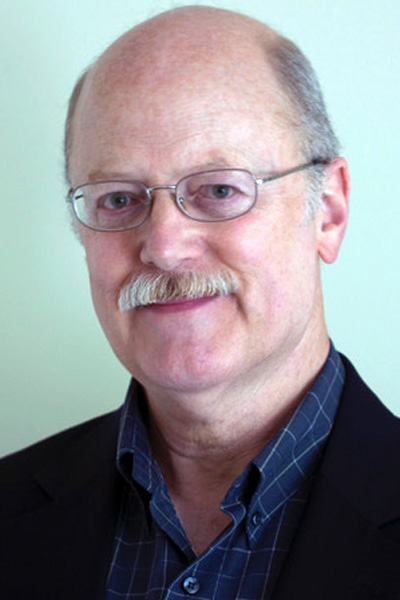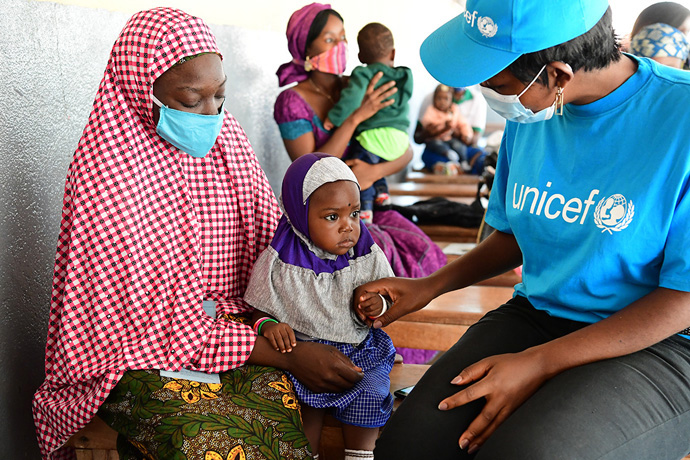Key points
- Love Beyond Borders is a campaign initiated by Cathedral of the Rockies, a United Methodist church in Boise, Idaho, and its purpose is to improve access to COVID-19 vaccines in low-income countries.
- The campaign has raised nearly half a million dollars and is part of a larger interfaith effort that has raised $2.5 million, guaranteeing vaccines for nearly 1.3 million people.
- Though vaccine supply has increased in poor countries, major challenges remain in getting shots in arms. So Love Beyond Borders continues to seek donations.

Photo courtesy of the author.
Commentaries
Love Beyond Borders is the Cathedral of the Rockies/First United Methodist Church of Boise campaign to create equitable access to COVID-19 vaccines among the poor countries of the world. When the campaign started in the spring of 2021, the main barrier to vaccine equity was the lack of vaccine. Western countries had purchased the majority of vaccines leaving poor countries without the supplies needed to protect their people. Love Beyond Borders called attention to this inequity with the refrain that the pandemic would not be over until it is over everywhere.
A year later the pandemic has evolved but is far from ended. In the West people likely think the pandemic is over, but it is far from over in the developing world. What has changed is the main barrier to access. The supply of vaccine has improved greatly, but delivering vaccine is complicated by a variety of local culture issues, conflict and health infrastructure challenges. Therefore, the work of Love Beyond Borders will continue until we meet our goal of $1 million from the Methodist community.
To date Love Beyond Borders has raised $472,597 from the United Methodist Committee on Relief (UMCOR) via the Love Beyond Borders Advance and direct United Methodist Church donations to UNICEF. That translates to 242,357 people receiving vaccinations. The larger Interfaith Movement to End the Pandemic, of which Love Beyond Borders is a part, has raised $2,518,581 from all interfaith partners. That means 1,291,580 people were vaccinated.
As the supply of vaccine improves, the donated funds will focus on addressing barriers to vaccination. But what exactly are the barriers preventing equity?
The country of Cameroon shows us an example of how complicated vaccinating people can be.
The conflicts in Cameroon are many and not well known outside of Africa. Al Shabab operates in the northwest, displacing people into the interior of Cameroon. These displaced people live in temporary camps or move into existing villages where there is no infrastructure to care for them. Refugees from Nigeria are in the northeast, and the ongoing conflict between Cameroonian Anglophone rebels and the government continues in the south and west.
All of this means that displaced people camps dot the country and the health care system is overstretched and unable to serve all of the needs. According to UNICEF, 3.9 million people in Cameroon need humanitarian assistance. As if that is not enough, where people are displaced into areas with no sanitation, cholera emerges. As of June 2022, cholera has infected more than 9,000 people, killing 172 and further overwhelming the health care system.
Even given these difficulties, Cameroon began national vaccinations in April 2021. The program quickly faced resistance. As a result, the initial supply of vaccine began to expire before it could be used.

By the end of 2021 only 1.5 % of the total population had been vaccinated. By July 2022 that had risen to only 3.6%.
Among the partners with Love Beyond Borders is International Community Research (ICR), a nonprofit humanitarian and community research organization. ICR has been working in Cameroon for several years and currently focuses on developing grass roots and locally supported efforts to strengthen local communities.
How to Help
Gifts to the Love Beyond Borders campaign can be made online at Advance #3022671 or by check (with #3022671 on the memo line) to Global Ministries/UMCOR GPO, P.O. Box 9068, New York, NY 10087-9068.
In terms of vaccination, the projects ask a simple question: What local resources exist that will build confidence in the vaccine and trust in the health system?
Three village pilot projects are underway in partnership with the Cameroon Health Districts serving the villages along with local faith networks and faith-based organizations. The approach is wholistic, with an emphasis on broad village development, including public health and care of displaced people. The results will help inform vaccination efforts in Cameroon, including vaccination support developed from the local people rather than from the top down.
The challenges show how difficult it can be to help people be vaccinated. In response to what was seen globally as an emergency, the government of Cameroon moved quickly ahead with vaccine before infrastructure and trust could be established. Now the vaccine campaign slowed as the government has become more patient, emphasizing the need to allow time to communicate, build trust and prepare workers. This is a slow process, but it will yield benefits across all vaccine efforts.
Therefore, we ask your continued support for Love Beyond Borders through the rest of this year. The pandemic is dynamic and we will assess our campaign in the New Year. As we work toward that aim, we are thankful for your continued support.
Dr. David Boan is the Permanent Representative to the World Health Organization for the World Evangelical Alliance and a member of the Cathedral of the Rockies, a United Methodist church in Boise, Idaho. Contact him at [email protected]. Sam Hodges of UM News edited this piece. Contact him at 615-742-5470 or [email protected]. To read more United Methodist news, subscribe to the free Daily or Weekly Digests.



